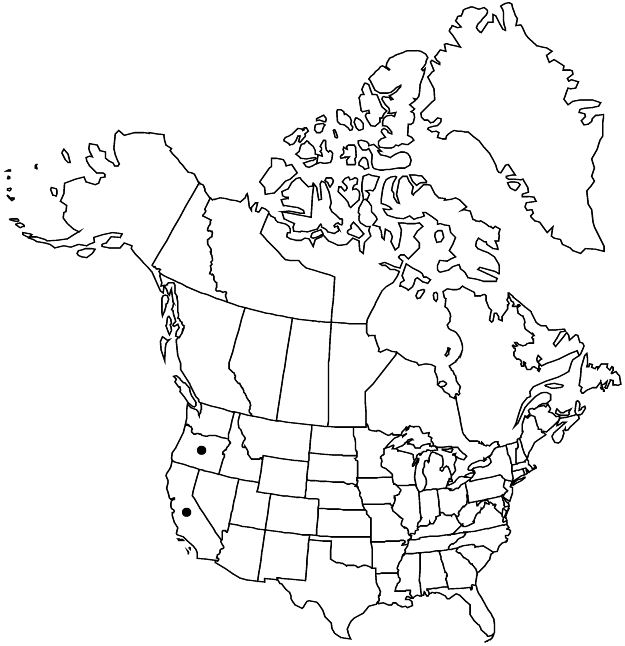Garrya elliptica
Edwards’s Bot. Reg. 20: plate 1686. 1834.
Shrubs or trees 2–7 m, branchlets short-villous. Leaves: blade grayish to silvery white abaxially, green adaxially, flat to concave-convex, usually elliptic, sometimes oval to ovatelanceolate, (2–) 6–10 (–12) × 1.4–7.2 cm, length 1.2–2.6 times width, margins ± undulate, often revolute and appearing crenate or dentate, smooth, apex rounded to obtuse, abaxial surface usually densely, sometimes becoming sparsely, closely tomentose, hairs curled or crisped, interwoven, adaxial surface glossy, glabrous. Aments: staminate 8–15 cm; pistillate compact, internodes to 1 mm, unbranched, pendulous, 8–15 cm; pistillate bracts connate proximally into deep cup, at least at proximal nodes each subtending 3 flowers, ovate-triangular, differing in size and shape from leaves, densely silky-villous. Berries 7–11 mm diam., densely tomentose, glabrescent, not glaucous. 2n = 22.
Phenology: Flowering (Dec–)Jan–Mar.
Habitat: Sea cliffs, sand dunes and hills, sandy riverbanks, gravelly sand, chaparral, closed-cone pine forests.
Elevation: 0–900(–1600) m.
Discussion
As noted by T. F. Daniel (1993), the fruiting aments of Garrya elliptica are wider (18–28 mm) than those of G. veatchii (13–18 mm); apparent intermediates between the two have been noted in closed-cone pine forests in San Luis Obispo County (F. Hrusa, pers. comm.). In their area of sympatry they differ in habitat.
Selected References
None.
